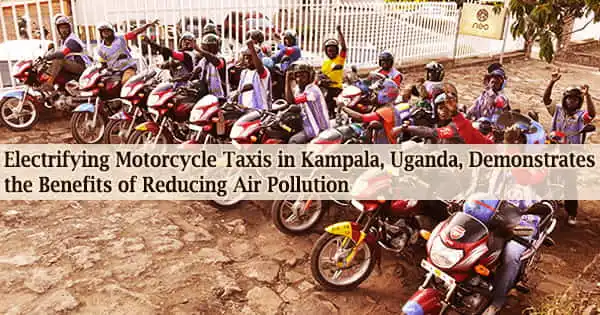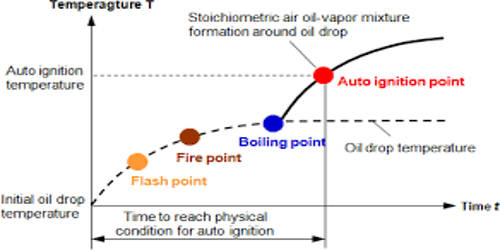Researchers from the University of Michigan wanted to know how electrifying motorbike taxis in Kampala, Uganda will affect air pollution emissions.
The findings suggest that electric motorbikes can lower global and local air pollution emissions, resulting in global and possibly local sustainability benefits.
Individuals’ health and the environment are both harmed by air pollution. Rapid urbanization has resulted in poor air quality for those living in low and middle-income countries, or LMICs.
In low- and middle-income nations, there are millions of motorcycles, but little research has been done on the effects of electrifying them. To close this gap, a group of academics led by Michael Craig, an assistant professor of energy systems at the University of Michigan School for Environment and Sustainability, set out.
Their research was published in Transportation Research Part D: Transportation and Environment.
“The transportation sector is a major emitter of global and local pollutants in LMICs, and motorcycles make up a large part of the transport sector in those countries,” Craig said.
“Electrification is a key decarbonization strategy for transport, but little research has considered how electrifying motorcycles in LMICs would yield local or global sustainability benefits. To understand how we can achieve those benefits, we teamed up with Zembo (electric motorcycle taxi company) to fill that gap.”
Hundreds of thousands of motorcycles are on the roads of Kampala, Uganda, with tens of thousands serving as taxis, or “boda bodas.” These motorcycles contribute to harmful amounts of air pollution, which routinely exceed the World Health Organization’s acceptable threshold for humans.
Electrification is a key decarbonization strategy for transport, but little research has considered how electrifying motorcycles in LMICs would yield local or global sustainability benefits. To understand how we can achieve those benefits, we teamed up with Zembo (electric motorcycle taxi company) to fill that gap.
Michael Craig
In response to rising worries over air pollution, cities across Sub-Saharan Africa have been urging residents to switch to electric motorcycles, with Rwanda considering banning gasoline motorcycles entirely.
Researchers from the University of Michigan coupled real-world travel and charging data from motorbike taxis in Kampala with computer models of Uganda’s power grid for this study. The researchers used an empirically driven approach to estimate emissions from conventional and electric motorcycle taxis, then compared the two to determine the benefits of electrification.
Because of the fuels used to generate electricity in Uganda, the data reveal that replacing traditional gas-powered motorbikes with electric motorcycles reduces some air pollutant emissions while increasing others.
Nonetheless, by relocating pollutants away from population centers, electrification may provide health benefits. While the impact of hydropower generation on emissions varies during the year, the study revealed that powering motorcycle taxis lowered annual carbon dioxide emissions by 36%, carbon monoxide emissions by 90%, nitrogen oxide emissions by 58 percent, and hydrocarbon emissions by 99 percent.
Electrification, on the other hand, increased annual sulfur oxide emissions by 870 percent, particulate matter 10 (PM10) emissions by 109 percent, and particulate matter 2.5 (PM2.5) emissions by 97 percent.
“LMICs have to be part of the solution in addressing climate change,” Craig said. “Our research indicates electrifying motorcycle taxis in Uganda can yield global climate benefits while also possibly producing local air quality benefits. Better understanding of global and local benefits associated with transport electrification in Kampala and other LMICs is crucial to guide investments.”
The study’s other authors include: Max Vanatta of the College of Engineering and Center for Sustainable Systems; Bhavesh Rathod of the U-M School for Environment and Sustainability; Jacob Calzavara of the School for Environment and Sustainability, Ross School of Business, Erb Institute and Center for Sustainable Systems; Herek Clack and Teanna Sims of the U-M College of Engineering; Pamela Jagger of the School for Environment and Sustainability. Étienne Saint-Sernin, co-founder of Zembo Electric Motorcycles; and Thomas Courtright, an independent researcher; The work was made possible by a Graham Catalyst Grant.
















